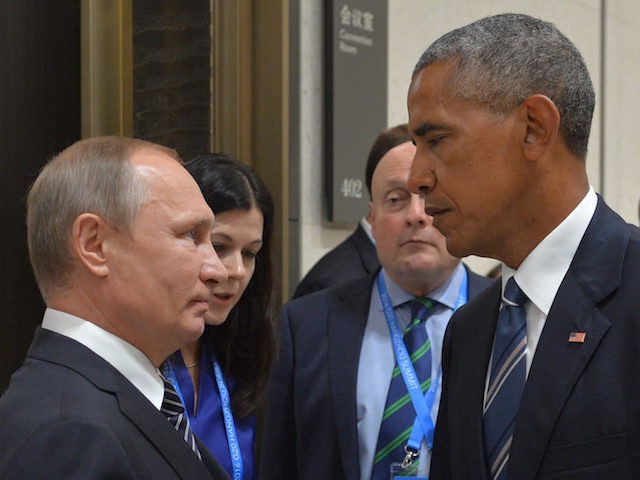WASHINGTON, D.C. — The United States has suspended negotiations with Russia over the war in Syria, accusing the Kremlin for the collapse of the most recent ceasefire and of joining forces loyal to Syrian Dictator Bashar al-Assad in targeting civilians in the besieged city of Aleppo rather than fighting the Islamic State (ISIS/ISIL).
According to the U.S. State Department, talks aimed at ensuring the safety of pilots from Russia and the United States will continue.
A day after the U.S. announced it was ending Syria talks with Russia, Fox News, citing three anonymous U.S. officials, reported that the Kremlin “has deployed an advanced anti-missile system to Syria for the first time.”
“While Moscow’s motives are not certain, officials say the new weapon system could potentially counter any American cruise missile attack in Syria,” adds the news network.
The U.S. officials noted that none of the jihadist groups operating in Syria, including ISIS and al-Qaeda, have manned military aircraft or possess cruise missiles, suggesting that Russia’s anti-missile system is aimed at protecting itself against any potential attack from the United States or its allies.
In response to the suspension of negotiations, Russian President Vladimir V. Putin also pulled out of a critical arms control agreement with the United States that required each side to dispose of 34 tons of plutonium, a material used in nuclear weapons.
“I think everyone’s patience with Russia has run out,” White House press secretary Josh Earnest told reporters on Monday, regarding the suspension of negotiations over the conflict in Syria.
“They [Russia] claim that they’re in Syria to fight extremists, but they haven’t achieved a significant counter-ISIL objective in more than seven months,” he continued. “They have been reduced to claiming credit for U.S. operations.”
John Kirby, a State Department spokesman, announced that the U.S. was cutting off direct talks with Russia in a written statement.
He wrote:
The United States is suspending its participation in bilateral channels with Russia that were established to sustain the cessation of hostilities. This is not a decision that was taken lightly. The United States spared no effort in negotiating and attempting to implement an arrangement with Russia aimed at reducing violence, providing unhindered humanitarian access, and degrading terrorist organizations operating in Syria, including Daesh [ISIS] and al Qaeda in Syria.
Kirby said Russia has not lived up to its commitments under international humanitarian law, adding:
Rather, Russia and the Syrian regime have chosen to pursue a military course, inconsistent with the cessation of hostilities, as demonstrated by their intensified attacks against civilian areas, targeting of critical infrastructure such as hospitals, and preventing humanitarian aid from reaching civilians in need, including through the September 19 attack on a humanitarian aid convoy.
The State Department spokesman was referring to Russian-backed Assad forces indiscriminately bombing the rebel-held region of Aleppo city in northern Syria, killing civilians, including children. Two weeks ago, a United Nations aid convoy was bombed in Aleppo, killing dozens of aid workers attempting to bring much-needed supplies to the nearly 275,000 residents trapped in the rebel-held portion of Aleppo city, the capital of a province of the same name. The Russian-backed Assad regime has denied targeting the air convoy.
“Notably missing from the [State Department] statement was any reference to steps the United States might take to strengthen the Syrian opposition by providing antiaircraft weapons or imposing economic sanctions to punish Russian organizations that are helping the Syrian government,” notes the New York Times (NYT).
Russia has also accused the United States of precipitating the failure of the ceasefire, repeatedly saying that Washington failed to live up to its commitment to separate Western-backed rebels from the former al-Qaeda affiliate in Syria Jabhat al-Nusra, which now calls itself Jabhat Fatah al-Sham (JFS).
The State Department spokesman pointed out that the U.S. was also withdrawing personnel that had been deployed for the possible establishment of a joint military coordination center with Russia.
Days after Russia began launching airstrikes on behalf of Assad at the end of September 2015, President Barack Obama predicted that efforts by the Kremlin and Iran to prop up the Syrian dictator would fail.
Last Friday, the one-year anniversary of the Russian intervention, the State Department conceded that Russia has succeeded in propping up the Assad regime.
“It is a grim anniversary… It is hard not to assess that they have succeeded in bolstering the regime,” Mark Toner, a State Department spokesman, told reporters.

COMMENTS
Please let us know if you're having issues with commenting.